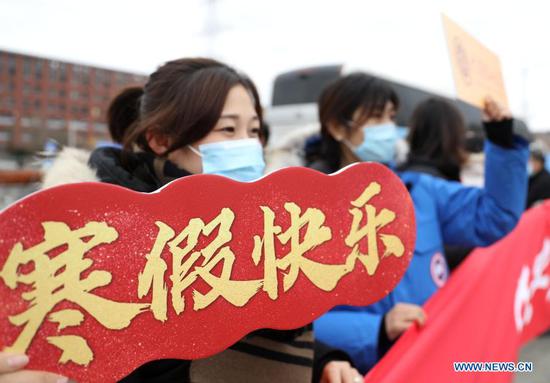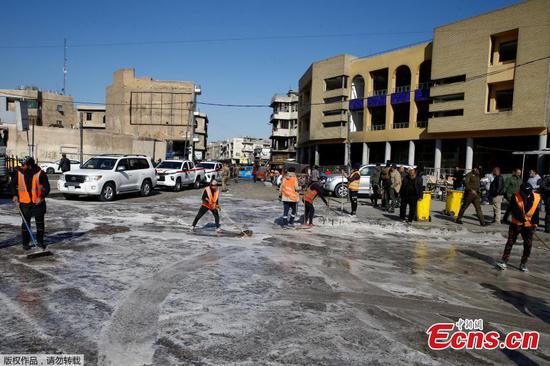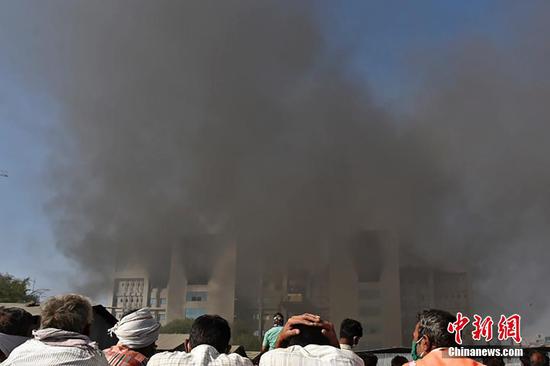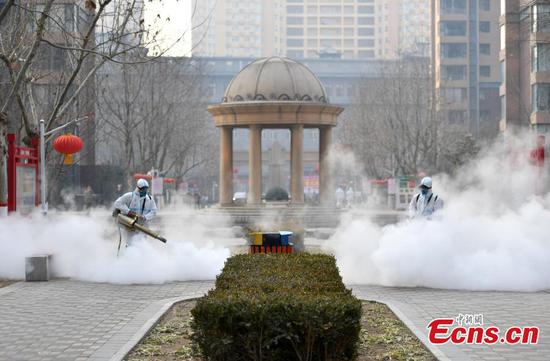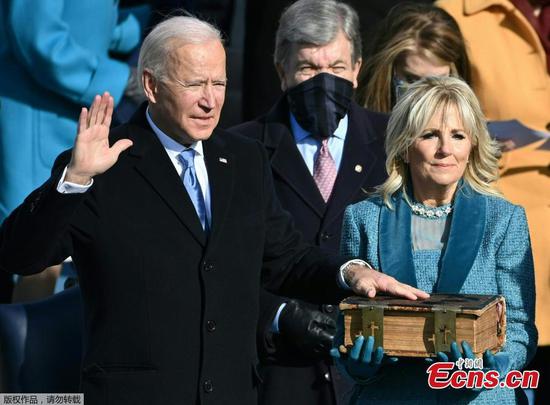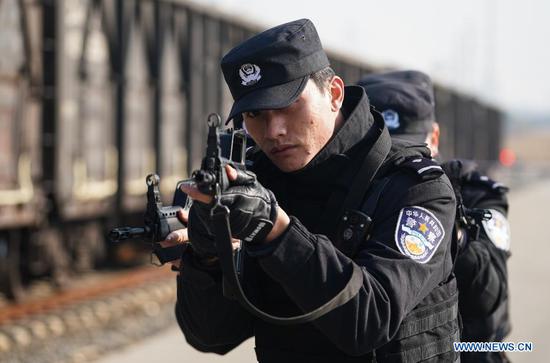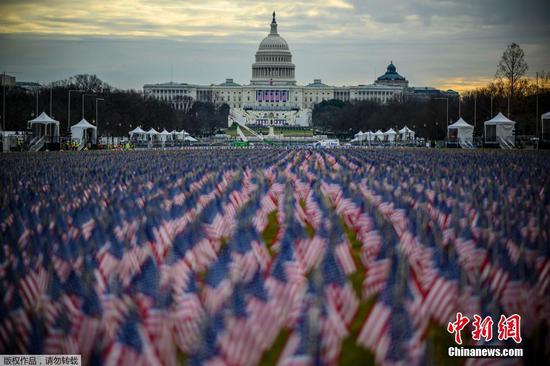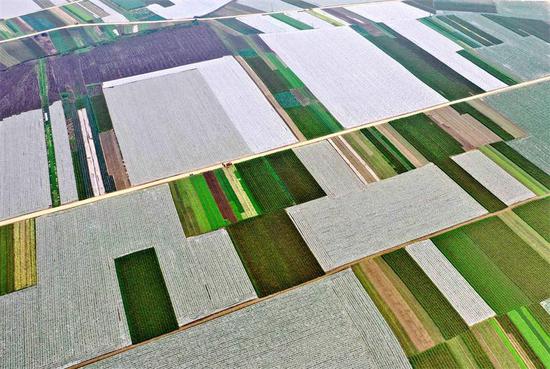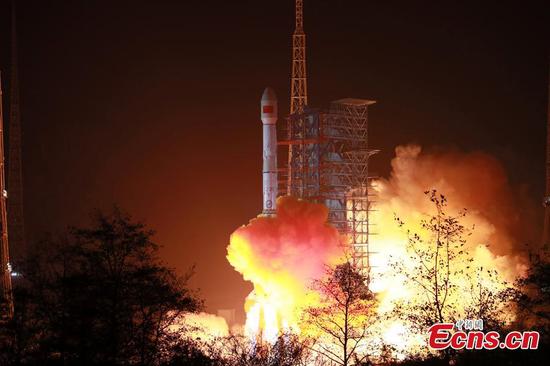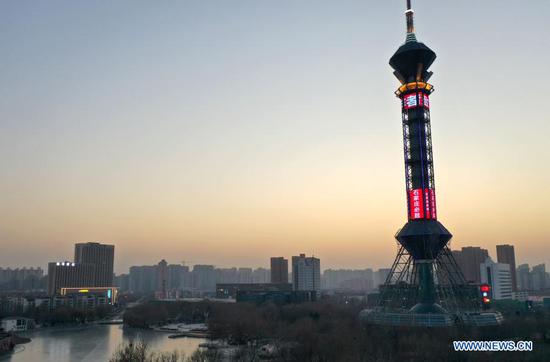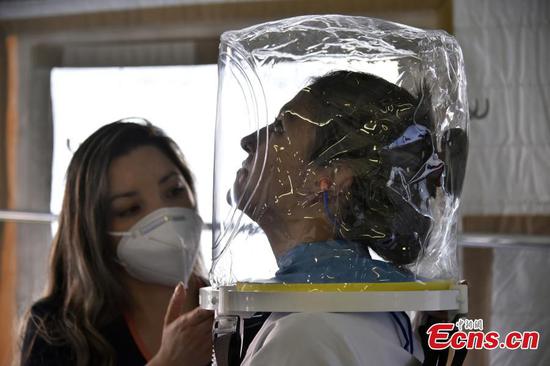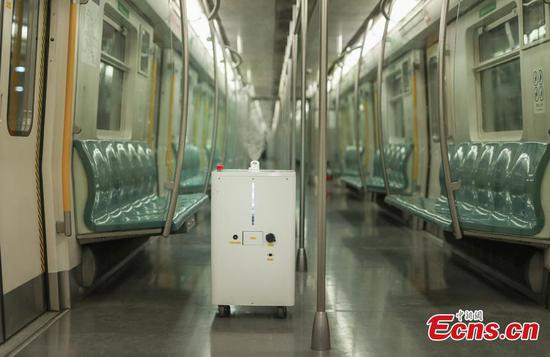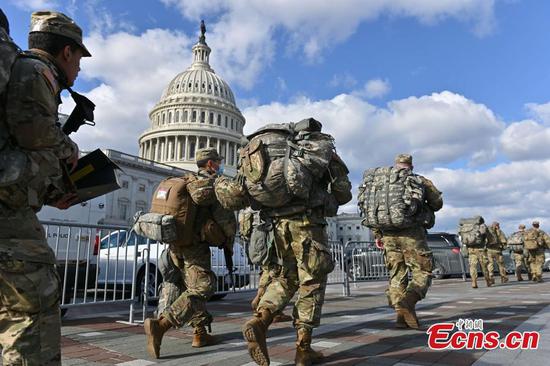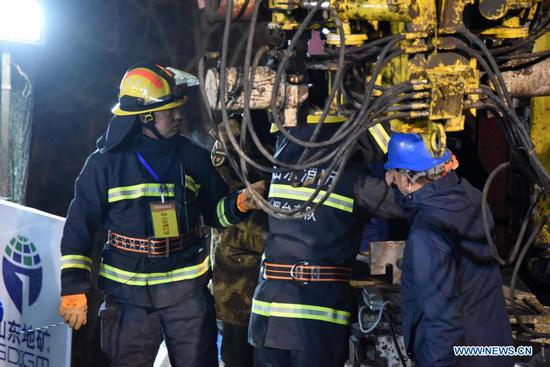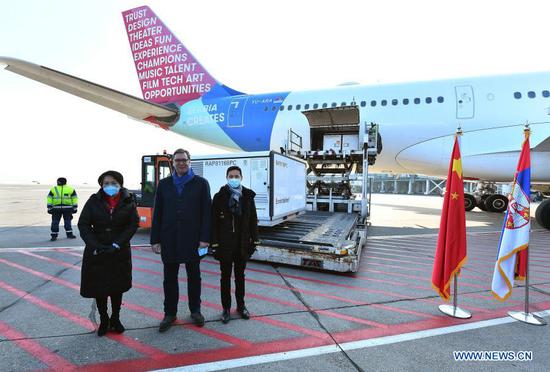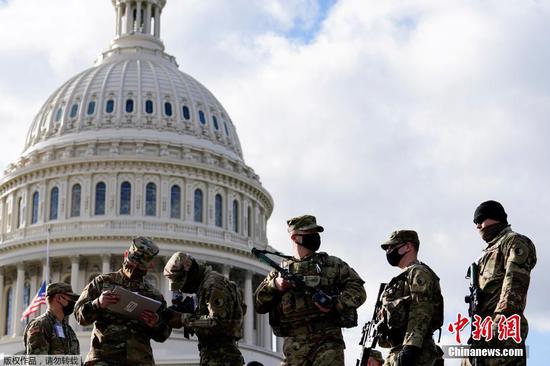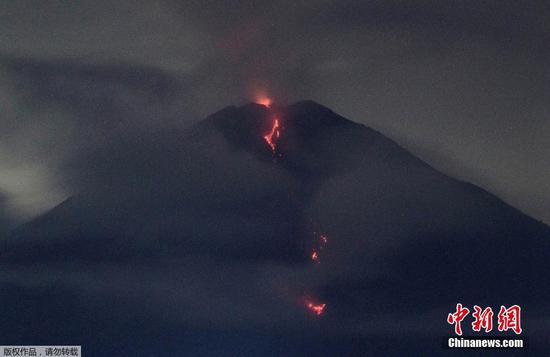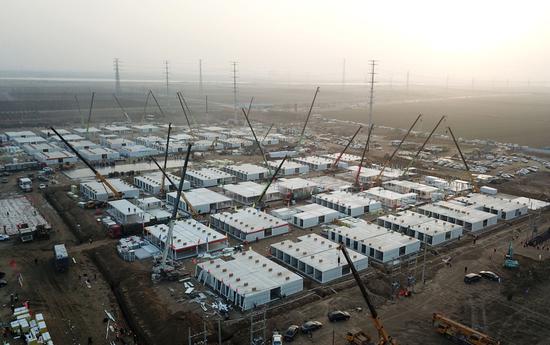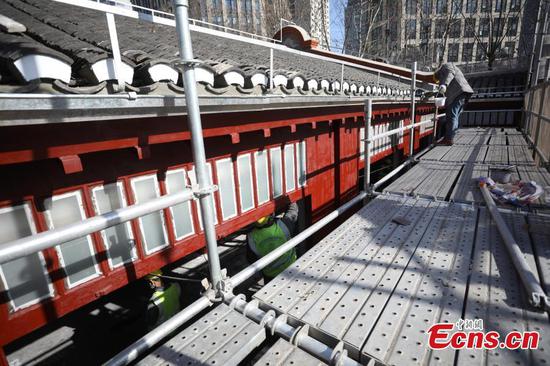The extremist Islamic State (IS) group claimed responsibility for the twin suicide bombings in Iraq's capital Baghdad that killed 32 people and wounded 116 others, Iraq media reports said on Friday.
The group identified the two suicide bombers by code names as Abu Yousif al-Ansari and Mohammed Arif al-Muhajir, who targeted a gathering of Shiite people in downtown Baghdad, according to local reports, citing an IS statement posted on the internet.
On Thursday morning, a suicide bomber detonated his explosive belt in a bustling outdoor market for second-hand clothes in Bab al-Sharji area, and a second one blew himself up a few minutes later in the same market.
Later on, Iraqi Prime Minister Mustafa al-Kadhimi, also commander-in-chief of the Iraqi forces, chaired an emergency meeting with security and intelligence commanders to discuss the security breach in Baghdad.
Following the meeting, a statement by al-Kadhimi's media office said that al-Kadhimi launched an investigation into the incident and ordered to hunt down the terrorist cells that facilitated the arrival of the suicide bombers.
Meanwhile, al-Kadhimi also sacked five security senior officials and commanders following the twin suicide bombings in Baghdad, according to a tweet by Yahia Rasoul, spokesman of the commander-in-chief of the Iraqi forces.
After years of deadly violence in Iraq after the U.S.-led invasion in 2003, massive suicide bombings have become rare in Baghdad, as the security situation has relatively improved in Iraq since the Iraqi security forces fully defeated IS militants across the country late in 2017.
However, sporadic deadly incidents still occur in the war-ravaged country as IS remnants have since melted into urban areas or deserts and rugged areas, carrying out frequent guerilla attacks against security forces and civilians.










